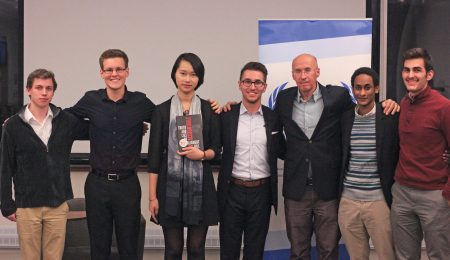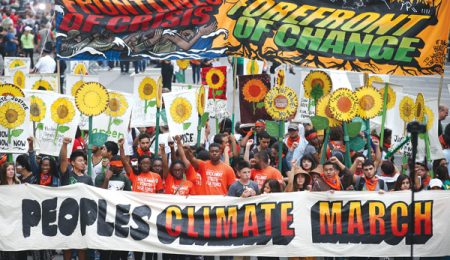U of O law experts discuss how social media influences elections
On Wednesday, March 14, the University of Ottawa hosted a panel on a subject that dominates the news, titled “Social Media and Democracy: Facebook and the 2019 election.” The panel, which focused on the impact of social media on election systems, consisted of Elizabeth Dubois, an assistant professor in the department of communication, Elizabeth Judge, an associate professor in the Faculty of Law and director of the doctoral program in Law, and Michael Pal, an assistant professor in the Faculty of Law, common law section.
Dubois, who acknowledged that “social media can be a force for democratic good,” spoke primarily about political bots on social media platforms. She highlighted the four main types of general bots—amplifier bots, which follow a politician and give them a positive image, repeatedly sharing one message; dampener bots, which attempt to push users offline or shut down certain ideas; servant bots, which broadcast information across many platforms at the same time; and transparency bots, which sift through publicly available data to ensure it is readable. In the political sphere, amplifier and dampener bots are widely used.
Pal then moved on to discuss the limits of platforms such as Facebook, saying, “Facebook is not a neutral social media platform as they brand themselves, they are a large-scale advertisement company.” He noted that existing election laws and tools can be modified to encompass new issues emerging in the digital age.
He then discussed the importance of transparency and spending limits, firstly by focusing on attribution rules that would “demand political parties disclose which ads they approve so the public knows who is advertising to them.”
“Spending limits are already a key element in today’s offline elections however, because advertising with Facebook is far cheaper, political parties do not come close to meeting the spending cap.”
Pal also advocated for a separate social media advertising limit and a rule that ensures each party pays the same price for the same advertising space.
Big data is a term constantly thrown around by politicians and tech tycoons alike. Judge focused on the use of big data around election season by the way of voter algorithmic profiling, explaining that “there is extensive voter data, seemingly non-political, that is used to put people in categories which are used to determine who is worth targeting.” Voter data includes which sites users visit, how long they stay on the site, what they do on online, their online purchases, and the comments they make.
Judge describes this as micro targeting, primitively used by President George H.W. Bush in the 1980s, but popularized under the Obama administration. According to Judge, micro targeting has “changed the relationship between party and voter.”
She then discussed the challenges that lawmakers face surrounding these issues. When do we legislate? If we wait too long, “practices become normalized and legal bodies are less willing to act” however, if we legislate right away “technologies will rapidly evolve to circumvent specific restrictions.”
A brief Q&A period followed the discussion, and in response to the discussion on regulation, Judge said that “too much regulation can infringe on long standing privacy laws and the right to trade secrets, we simply need transparency on how algorithms are applied in the election realm.”
“There is a lot we don’t know and are still learning,” said Judge. As we head into the 2019 federal election, voters, governments, and academics must determine how much transparency and regulation is needed to ensure our democratic processes remain open to all.





